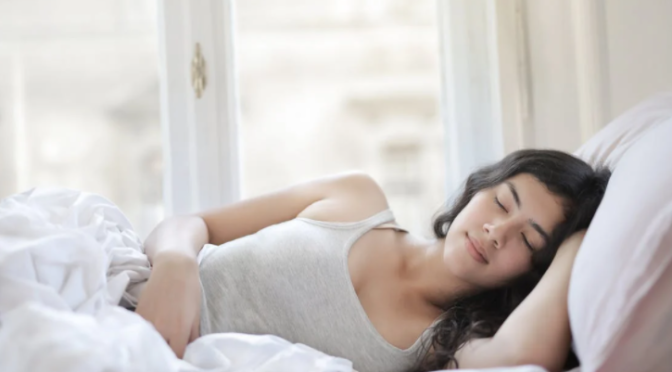
It can be hard to fall asleep. It can be hard to fall asleep even if you have a bedtime routine that you stick to. You seem to keep tossing and turning as the hours go by. Eventually, you find a little sleep. It looks like you didn’t get enough sleep during the night before you wake up. You reach for a cup of coffee or an energy drink to try to get through the day. Then insomnia returns at night. If you have trouble falling asleep, it could be a sign of a medical problem you need to address. For more helpful tips to help you fall asleep easier, check out https://sflcn.com/having-trouble-sleeping-here-are-some-solutions-to-help-you-out/.

Talking to a local sleep health doctor is the first step. You may be able to resolve your insomnia issues by treating the underlying medical problem. Chronic or acute insomnia can develop if you stay awake more than three nights a week. This can last for about a month. More than 30% of Americans have insomnia. This rate is comparable in Europe, Asia, and Australia. Here are some tips you can use with a treatment plan or on your own to help you fall asleep more easily.
Spray Herbal Potions
Many people experience insomnia because of an imbalance. This can be an anxiety imbalance or a chemical imbalance. Restoring restful sleep is possible by restoring balance in your life. Some many herbs and supplements can facilitate sleep. If you have occasional insomnia, lavender is one of the best remedies. When available, this woody shrub can help promote relaxation. Lavender essential oil can be added to an infuser. You can also steam your mattress with lavender vapor before going to bed. These benefits are similar. The benefits are all similar.
Turn Off the Lights
 Our bodies are programmed to be awake during the day and asleep at night. This is due to our natural rhythms. This is why you may feel tired when your alarm goes off at 6-8 am. You feel more awake and alert when the sun comes up, making you more ready for the day. Any light pollution can disrupt your natural biological clock. Your brain thinks there are still hours of daylight left, which causes a decrease in melatonin production.
Our bodies are programmed to be awake during the day and asleep at night. This is due to our natural rhythms. This is why you may feel tired when your alarm goes off at 6-8 am. You feel more awake and alert when the sun comes up, making you more ready for the day. Any light pollution can disrupt your natural biological clock. Your brain thinks there are still hours of daylight left, which causes a decrease in melatonin production.
Sunlight should not be the cause of light pollution, tricking the pineal gland into not performing its function at bedtime. Light in the area where one expects to sleep can disrupt a person’s sleep cycle. This can reduce melatonin levels by up to 50%. This means you will get less sleep each night. Lack of sleep and melatonin can lead to a weakened immune system. This can lead to a lack of memory, which in turn can increase your risk of developing serious health problems. To create a bedroom that is a haven, turn off all the lights.
Perform Progressive Muscle Relaxation
People who have trouble falling asleep are advised to use progressive muscle relaxation. In this method, muscles are loosened through selective contraction and relaxation. With regular use, you can establish a stable sleep pattern and reduce blood pressure. It acts as a barrier against anxiety. Moreover, it also helps with fatigue and muscle tension and helps with sleep.
Relaxation stops racing thoughts, as progressive muscle relaxation requires you to focus on exercise. Sleep is promoted when the body begins to relax. This option may not be right for you if your chronic pain prevents you from getting restful sleep. Chronic pain can make it difficult to fall asleep. A progressive muscle relaxation exercise takes only 10-15 minutes. This script will help you become familiar with the option and determine if it is right for you.
